Podcast Topic: Equity, Race & Food Justice
The Leading Voices in Food
Podcast Topic: Equity, Race & Food Justice
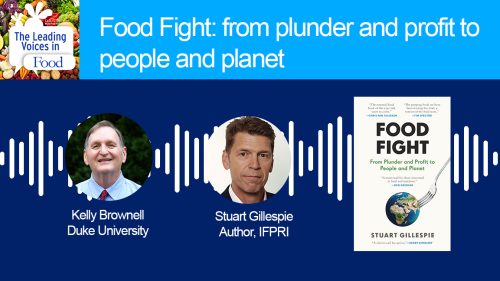 E277: Food Fight – from plunder and profit to people and planet
E277: Food Fight – from plunder and profit to people and planet
June 27, 2025
Today we’re talking with health and nutrition expert Dr. Stuart Gillespie, author of a new book entitled Food Fight: from Plunder and Profit to People and Planet. Using decades of research and insight gathered from around the world, Dr. Gillespie wants to reimagine our global food system and plot a way forward to a sustainable, equitable, and healthy food future – one where our food system isn’t making us sick. Certainly not the case now. Over the course of his career, Dr. Gillespie has worked with the UN Standing Committee on Nutrition in Geneva with UNICEF in India and with the International Food Policy Research Institute, known as IFPRI, where he’s led initiatives tackling the double burden of malnutrition and agriculture and health research. He holds a PhD in human nutrition from the London School of Hygiene and Tropical Medicine.
Related podcasts: Economics of the food system | Equity, Race & Food Justice | Food Industry Behavior & Marketing | Food Policy | History & Food | International Food & Ag Policy |
 E263: Explore the Daily Table non profit grocery store model
E263: Explore the Daily Table non profit grocery store model
February 5, 2025
Today, we’re going to explore Daily Table, an innovative non profit grocery chain dedicated to providing fresh, convenient, and nutritious food affordable to everyone, even those on the Supplemental Nutrition Assistance Program, or SNAP. In today’s economic climate, where rising food prices are impacting households across the country, the concept of a non profit grocery store seems to fill a real need. Our guest today is Daily Table CEO, Sasha Purpura, a software engineer who spent 15 years in the tech industry and product management and development roles.
Related podcasts: Advocacy & Food | Community & Economic Development | Economics of the food system | Equity, Race & Food Justice | Food Banks, Food Pantries & Soup Kitchens | Food Insecurity | Philanthropy & Food Systems |
 E253: Learnings from No Kid Hungry in New York
E253: Learnings from No Kid Hungry in New York
October 29, 2024
When we talk about problems with food insecurity and the food system, we tend to reference challenges at the national or international level. And of course, work at that level really needs to be done. But increasingly, there is a unique focus on regional food system strategies and right sizing solutions to best fit those unique characteristics of a particular locale. In today’s podcast, we will talk with Rachel Sabella, director of No Kid Hungry New York. She leads the planning, implementation, and evaluation of the No Kid Hungry campaigns across the state of New York.
Related podcasts: Child Development & Nutrition | Community & Economic Development | Equity, Race & Food Justice | Food Policy |
 E250: Roots of Change – Successful, incentive-based food and farm policy advocacy
E250: Roots of Change – Successful, incentive-based food and farm policy advocacy
October 8, 2024
Join Kelly Brownell in a conversation with Michael Dimock, Executive Director of Roots of Change, about transforming food systems through innovative policies. Discover how Roots of Change collaborates with various stakeholders to create nutrition incentive programs and support sustainable agriculture, focusing on community-first approaches. Learn about pioneering projects, insights into policy influence, and the future of agricultural practices. This episode provides an optimistic view of the evolving food system landscape and the potential for significant positive change.
Related podcasts: Advocacy & Food | Climate Change, Environment & Food | Community & Economic Development | Equity, Race & Food Justice | Food Policy | Regenerative Agriculture |
 E244: US Food History – Food as a tool for oppression
E244: US Food History – Food as a tool for oppression
September 4, 2024
Today we discuss a new and provocatively titled book written by Southwestern Law School professor Andrea Freeman, an expert on issues of race, food policy, and health from both legal and policy perspectives. The book’s title, Ruin Their Crops on the Ground, the Politics of Food in the United States from the Trail of Tears to School Lunch, has been called the first and definitive history of the use of food in the United States law and politics as a weapon of conquest and control. Freeman argues that the U. S. food law and policy process has both created and maintained racial and social inequity. She documents governmental policies from colonization to slavery; to the commodities supplied to Native American reservations. She argues that the long-standing alliance between government and the food industry has produced racial health disparities to this day.
Related podcasts: Equity, Race & Food Justice | Food Banks, Food Pantries & Soup Kitchens | Food Policy | Food System Narratives | History & Food |
 E239: National report – where the grocery stores are missing
E239: National report – where the grocery stores are missing
July 16, 2024
Today we’re talking about who has access to full-service supermarkets in America’s cities, suburbs, small towns and rural communities. According to The Reinvestment Fund’s “2023 Limited Supermarket Access Analysis Report,” 8.5% of people in the US live in areas with limited access to full-service supermarkets. This means that families must travel further to get fresh foods, and it creates a barrier to adequate nutrition. This is the 10th year The Reinvestment Fund has published the “Supermarket Access Report,” which provides data and context about grocery store access across the country. Here to discuss the latest figures is policy and analyst Michael Norton.
Related podcasts: Community & Economic Development | Equity, Race & Food Justice | Food Insecurity | Philanthropy & Food Systems |
 E235: A successful interactive obesity treatment approach
E235: A successful interactive obesity treatment approach
April 22, 2024
Traditional clinical weight loss interventions can be costly, time consuming, and inaccessible to low-income populations and people without adequate health insurance. Today’s guest, Dr. Gary Bennett, has developed an Interactive Obesity Treatment Approach, or iOTA for short, that represents a real advance in this area. Dr. Bennett is Professor of Psychology and Neuroscience, Medicine and Global Health at Duke University, where he is also Dean of Trinity College of Arts and Sciences.
Related podcasts: Diet & Nutrition | Equity, Race & Food Justice | Obesity |
 E234: White Burgers, Black Cash – a history of fast food discrimination
E234: White Burgers, Black Cash – a history of fast food discrimination
April 8, 2024
Fast food is part of American life. As much a part of our background as the sky and the clouds. But it wasn’t always that way, and over the decades, the fast food landscape has changed in quite profound ways. Race is a key part of that picture. A landmark exploration of this has been published by today’s guest, Dr. Naa Oyo A. Kwate. She is an Associate Professor in the Department of Africana Studies and the Department of Human Ecology at Rutgers University. Her book, recently published, is entitled White Burgers, Black Cash: Fast Food From Black Exclusion to Exploitation. The book has been received very positively by the field. And was recently named the best book in the field of urban affairs by the Urban Affairs Association.
Related podcasts: Equity, Race & Food Justice | Food Industry Behavior & Marketing | Food System Narratives |
 E225: Efficient Food Recovery and Waste Prevention – a Business Strategy
E225: Efficient Food Recovery and Waste Prevention – a Business Strategy
January 17, 2024
Our guest today is Jasmine Crowe-Houston, social entrepreneur, and founder of Goodr.co. Jasmine started her journey cooking soul food for hungry unhoused people in her kitchen in her one-bedroom apartment in Atlanta. She fed upwards of 500 people a week for years with pop-up kitchens and parks and parking lots. Then in 2017, she founded Goodr, a technology-based food waste management company that connects firms with food surpluses to nonprofit organizations that can use the food. She has worked with organizations that have food waste issues, such as the Atlanta International Airport, Hormel Foods, and Turner Broadcasting. Today, Goodr has expanded nationwide and sponsors free grocery stores and schools. She has combined charity, innovation, and market-based solutions into a for-profit waste management company that Inc. Magazine called a rare triple win.
Related podcasts: Climate Change, Environment & Food | Equity, Race & Food Justice | Food Banks, Food Pantries & Soup Kitchens | Food Insecurity | Food Safety & Food Defense | Food Waste & Implications |
 E224: Mississippi Delta History Describe Food Power Against and For Blacks in US
E224: Mississippi Delta History Describe Food Power Against and For Blacks in US
January 16, 2024
Stories from the past help us understand who we are and who we can be. In today’s podcast, we will explore a gripping new book titled “Food Power Politics: The Food Story of the Mississippi Civil Rights Movement,” written by African American Studies Assistant Professor Bobby J. Smith II at the University of Illinois at Urbana-Champaign. The book tells how food was used as a political weapon against African Americans and describes how black people fought against oppressive regimes by creating their own food systems, Bobby sets the stage for understanding how black youth today in Mississippi and beyond are building food justice movements and grappling with inequalities that attempt to contort their lives.
Related podcasts: Equity, Race & Food Justice | Food Insecurity | Food System Narratives | History & Food |

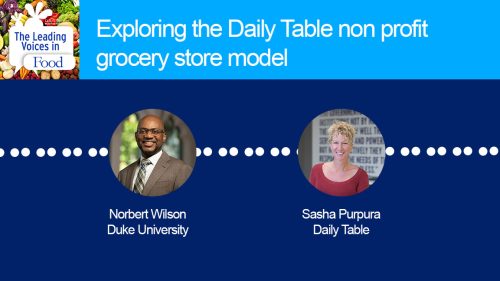 E263: Explore the Daily Table non profit grocery store model
E263: Explore the Daily Table non profit grocery store model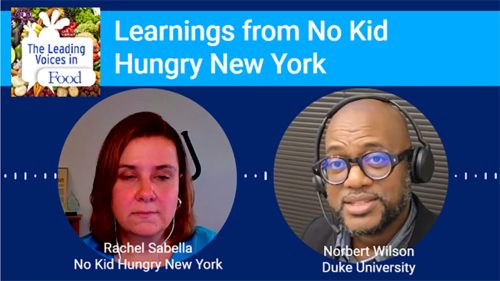 E253: Learnings from No Kid Hungry in New York
E253: Learnings from No Kid Hungry in New York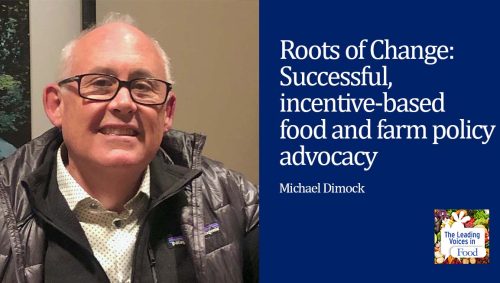 E250: Roots of Change – Successful, incentive-based food and farm policy advocacy
E250: Roots of Change – Successful, incentive-based food and farm policy advocacy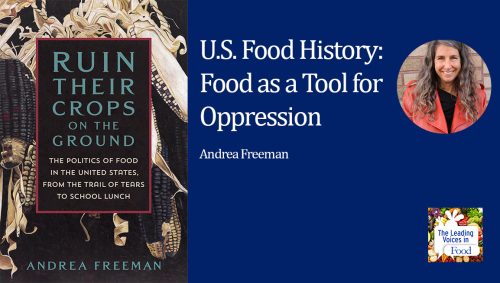 E244: US Food History – Food as a tool for oppression
E244: US Food History – Food as a tool for oppression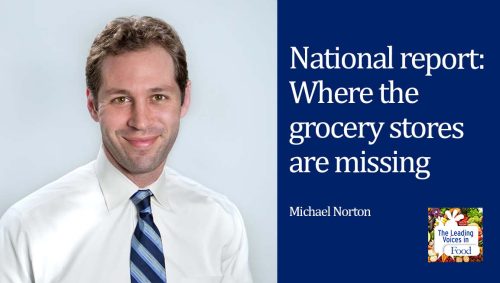 E239: National report – where the grocery stores are missing
E239: National report – where the grocery stores are missing E235: A successful interactive obesity treatment approach
E235: A successful interactive obesity treatment approach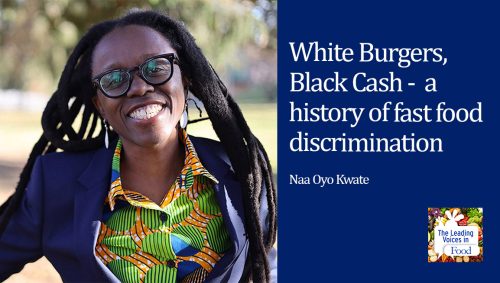 E234: White Burgers, Black Cash – a history of fast food discrimination
E234: White Burgers, Black Cash – a history of fast food discrimination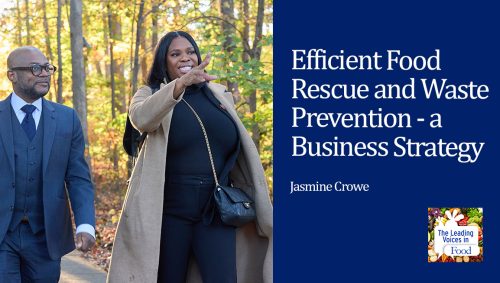 E225: Efficient Food Recovery and Waste Prevention – a Business Strategy
E225: Efficient Food Recovery and Waste Prevention – a Business Strategy E224: Mississippi Delta History Describe Food Power Against and For Blacks in US
E224: Mississippi Delta History Describe Food Power Against and For Blacks in US